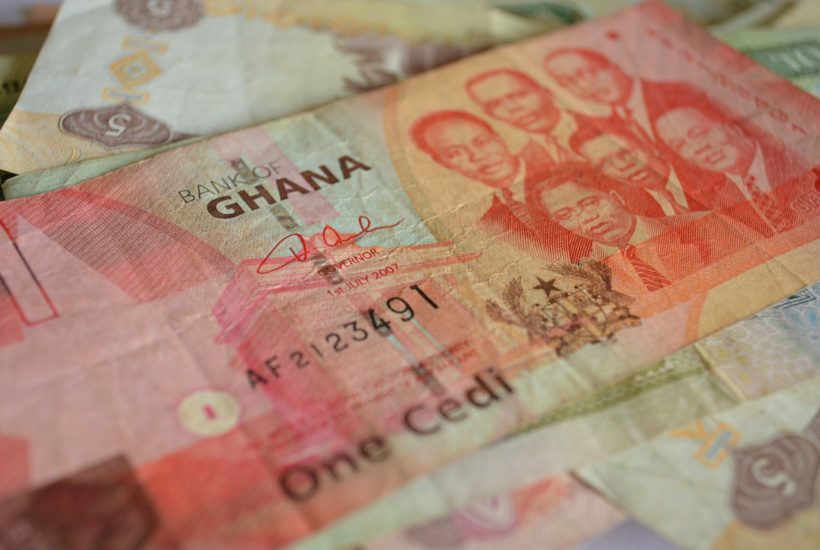Crypto
The Central Bank of Ghana will soon test its digital currency
A representative of the Central Bank of Ghana said that the Office of Financial Technologies and Innovation, created on May 5th, works in the structure of the organization. The task of the new structure is to digitalize the country’s financial system. In addition to Ghana, the National Bank of Rwanda announced the development of its own state-owned cryptocurrency.

The deputy head of the Bank of Ghana, Dr. Maxwell Opoku-Efari, said the organization is committed to conducting pilot transactions for the sale of goods and services using digital currency. The country’s central bank intends to work out the issue of large-scale launch of the state cryptocurrency on the Blockchain (CBDC).
Find out more details about Africa’s potential and how the Central Bank of Ghana will test its own cryptocurrency, and be the first to read the most important business news in the world, with the Born2Invest mobile app.
The country’s financial system to be digitized
This issue was raised during the Opoku Efari online meeting with representatives of banks and payment operators with businesses in Ghana. A representative of the Central Bank of Ghana said that the Office of Financial Technologies and Innovation, created on May 5th, works in the structure of the organization. The task of the new structure is to digitalize the country’s financial system. The Office also serves as a tool “for developing regulatory documents, which should be focused on the promotion of financial technology.”
Since 2016, the Bank of Ghana has also created the Department of Payment Systems, whose tasks include the search for modern innovations that could be implemented in interbank financial relations. Opoku-Efari said that just the work of this department led to the emergence of a special structural unit, which began to work intensively with financial technologies. In particular, a project of the Bank of Ghana and the Commercial Bank of Ghana to launch electronic money has already been implemented.
The CBDC itself will first be tested as part of an experimental regulatory platform established under the Bank of Ghana. The representative of the central bank noted: “Digital financial technologies will determine the development of the banking sector in the future.”
The need to use “figures” in the organization is explained by the fact that the volume of money transactions, including through mobile applications, has increased almost twice in the country over the past three years.
Africa has huge potential for the use of cryptocurrencies
Earlier, Jack Dorsey, the founder of the social network Twitter and the cryptographic company Square, also talked about the great potential for the use of blockchain and cryptocurrency in Africa. After a visit to Nigeria, as well as Ghana, another country where, according to Google Trends, there has been an increase in interest in Bitcoin during the year, Dorsey said that “Africa will play a decisive role in the fate of Bitcoin.”
In addition to Ghana, the National Bank of Rwanda announced the development of its own state-owned cryptocurrency, noting that the SBDC can “improve transaction efficiency, as well as become a driver of economic growth.”
The Bank for International Settlements (BIS), which is an important “opinion leader” for the central banks of most countries of the world, made a report in which it said that regulators in different countries should seriously consider launching their own cryptocurrencies (CBDC).
BIS experts emphasized that their recommendation is that CBDC has strengths that are very important when humanity is struggling with the coronavirus pandemic. In particular, the report stated that the situation with the coronavirus shifts the global financial system towards greater use of digital payments. In addition, their study of the current situation with the organization of money circulation in the world led to the conclusion that the use of CBDC, that is, digital money, may be preferable not only to cash but even to bank cards, especially if it is not a contactless payment method.
__
(Featured image by PDPics via Pixabay)
DISCLAIMER: This article was written by a third party contributor and does not reflect the opinion of Born2Invest, its management, staff or its associates. Please review our disclaimer for more information.
This article may include forward-looking statements. These forward-looking statements generally are identified by the words “believe,” “project,” “estimate,” “become,” “plan,” “will,” and similar expressions. These forward-looking statements involve known and unknown risks as well as uncertainties, including those discussed in the following cautionary statements and elsewhere in this article and on this site. Although the Company may believe that its expectations are based on reasonable assumptions, the actual results that the Company may achieve may differ materially from any forward-looking statements, which reflect the opinions of the management of the Company only as of the date hereof. Additionally, please make sure to read these important disclosures.
First published in CLICK CHAIN, a third-party contributor translated and adapted the article from the original. In case of discrepancy, the original will prevail.
Although we made reasonable efforts to provide accurate translations, some parts may be incorrect. Born2Invest assumes no responsibility for errors, omissions or ambiguities in the translations provided on this website. Any person or entity relying on translated content does so at their own risk. Born2Invest is not responsible for losses caused by such reliance on the accuracy or reliability of translated information. If you wish to report an error or inaccuracy in the translation, we encourage you to contact us.

-

 Cannabis5 days ago
Cannabis5 days agoCannabis and the Aging Brain: New Research Challenges Old Assumptions
-

 Africa2 weeks ago
Africa2 weeks agoUnemployment in Moroco Falls in 2025, but Underemployment and Youth Joblessness Rise
-

 Crowdfunding3 days ago
Crowdfunding3 days agoAWOL Vision’s Aetherion Projectors Raise Millions on Kickstarter
-

 Fintech1 week ago
Fintech1 week agoFintower Secures €1.5M Seed Funding to Transform Financial Planning

























